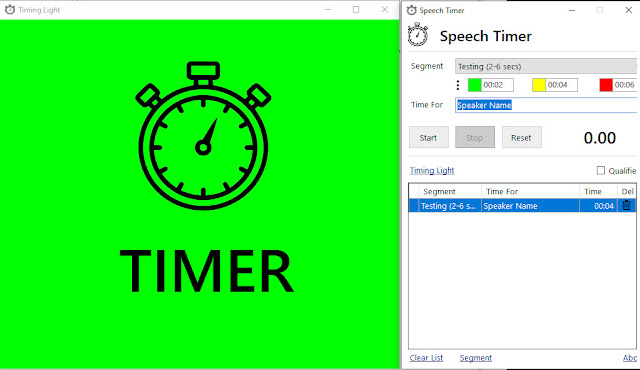L1-P2: Evaluation and Feedback
"You get what you reward." Bob Nelson, author of 1001 Ways to Reward Employees, described. He particularly stressed the value of positive feedback, immediate recognition, informal recognition, and effective program design.
The 2nd project in Level 1 of Pathways focuses on Evaluation and Feedback. Getting feedback on your speech and applying that feedback in your future projects is a critical element of the Toastmaster journey. This feedback mechanism allows Toastmasters to continuously improve.
This project is comprised of 3 parts.
This project came up just as I was planning a 2-week trek in the Himalayas. I love trekking and decided to create the speeches around the subject.
Speech 1: Heaven on Earth
In this speech, I talked about my love for trekking, what I hope to achieve during the trek, and why everyone must disconnect from their modern devices once in a while and trek in the Himalayas before they die.
Feedback from this speech: The evaluator loved the subject, my comfort with the audience and my passion for trekking. He recommended that I use greater vocal variety in my speech delivery and felt that I could have used the stage better. He also suggested that I avoid using long pauses.
Speech 2: Heaven on Earth (The Conclusion)
I delivered this speech after I returned from my trek. I talked about experience, the challenges of sleeping in a tent at 14,000 feet above sea level, and the sheer majesty and beauty of the Himalayan mountain range. I concluded by urging everyone to try it.
Feedback from this speech: The evaluator felt that I had considered his original feedback in my 2nd speech and provided additional feedback to improve further.
Speech 3: Evaluation
I took up a role as a speech evaluator and provided my evaluation to the speaker.
Feedback from this speech: I requested a senior club member to provide me with a written evaluation of my performance as a speech evaluator. The evaluator felt that I had delivered a good evaluation and encouraged me to start exploring mentoring and coaching as my next target.
 |
| Trekking in the Himalayas - Uttrakhand, India (June 2018). |
This project is comprised of 3 parts.
Speech
|
Type
|
Duration
|
1
|
Present a speech on any topic, receive feedback.
|
5-7 Minutes
|
2
|
Demonstrate that he or she has applied the feedback received from his or her first speech.
|
5-7 Minutes
|
3
|
Deliver constructive feedback on another member’s presentation.
|
2-3 Minutes
|
This project came up just as I was planning a 2-week trek in the Himalayas. I love trekking and decided to create the speeches around the subject.
Speech 1: Heaven on Earth
In this speech, I talked about my love for trekking, what I hope to achieve during the trek, and why everyone must disconnect from their modern devices once in a while and trek in the Himalayas before they die.
Feedback from this speech: The evaluator loved the subject, my comfort with the audience and my passion for trekking. He recommended that I use greater vocal variety in my speech delivery and felt that I could have used the stage better. He also suggested that I avoid using long pauses.
Speech 2: Heaven on Earth (The Conclusion)
I delivered this speech after I returned from my trek. I talked about experience, the challenges of sleeping in a tent at 14,000 feet above sea level, and the sheer majesty and beauty of the Himalayan mountain range. I concluded by urging everyone to try it.
Feedback from this speech: The evaluator felt that I had considered his original feedback in my 2nd speech and provided additional feedback to improve further.
Speech 3: Evaluation
I took up a role as a speech evaluator and provided my evaluation to the speaker.
Feedback from this speech: I requested a senior club member to provide me with a written evaluation of my performance as a speech evaluator. The evaluator felt that I had delivered a good evaluation and encouraged me to start exploring mentoring and coaching as my next target.
IMPORTANT NOTES ON THIS PROJECT:
1. When you deliver Speech 2, it is necessary to repeat speech 1 or can you give a different speech?
Answer: You can repeat Speech 1 as Speech 2 but it is not necessary. You can deliver a different speech. Just ensure you incorporate the feedback received in Speech 1.
2. Is it necessary to have the same evaluator for Speech 1 and Speech 2?
Answer: It is recommended that the evaluator for both speeches be the same. This will allow the evaluator to determine whether you have incorporated the feedback from Speech 1 in Speech 2. However, if it is not possible to have the same evaluator, you must ensure you share the feedback of Speech 1 with the evaluator of Speech 2.
3. Who should Evaluate the Evaluation (Speech 3)?
Answer: You should choose an experienced Toastmaster to provide feedback to you when you deliver your first evaluation. The evaluator only needs to give you a written evaluation. Oral evaluation is not necessary since it is not a prepared speech.
Answer: You can repeat Speech 1 as Speech 2 but it is not necessary. You can deliver a different speech. Just ensure you incorporate the feedback received in Speech 1.
2. Is it necessary to have the same evaluator for Speech 1 and Speech 2?
Answer: It is recommended that the evaluator for both speeches be the same. This will allow the evaluator to determine whether you have incorporated the feedback from Speech 1 in Speech 2. However, if it is not possible to have the same evaluator, you must ensure you share the feedback of Speech 1 with the evaluator of Speech 2.
3. Who should Evaluate the Evaluation (Speech 3)?
Answer: You should choose an experienced Toastmaster to provide feedback to you when you deliver your first evaluation. The evaluator only needs to give you a written evaluation. Oral evaluation is not necessary since it is not a prepared speech.


Comments
Post a Comment